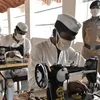How healthcare workers are putting their lives on the line in the fight against coronavirus
As the coronavirus pandemic paralyses the lives of people, frontline health workers and doctors have been putting up with unpleasant events to treat the infected. A collaborative effort seems to be the key to alleviate their burden at this time.
Right from dealing with the risk of pathogen exposure, working for long hours, and experiencing occupational distress, to enduring physical violence, as well as social stigma, doctors and frontline health workers in the country are not breathing easy. Ever since the surge in coronavirus cases, the very people who are attempting to detect and treat the virus have been facing multiple challenges. 34-year-old Sanjibani Panigrahi is one such individual.
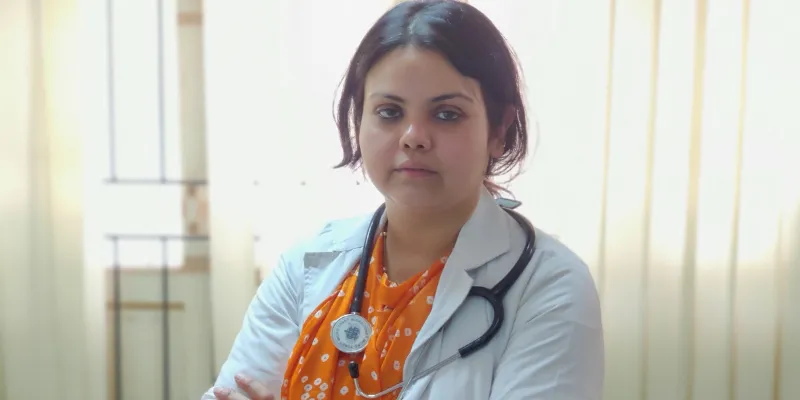
The 34-year-old doctor Sanjibani Panigrahi.
The Surat-based doctor – who works as an Assistant Professor at the New Civil Hospital – encountered a disturbing event a few days ago. On April 4, when Sanjibani was about to enter her two-bedroom home located in an apartment in Adajan, her neighbours began hurling a torrent of abuses and threatening her of grim consequences if she failed to vacate the building.
“I was truly appalled by whatever transpired that day. Many people think that I might be carrying the virus simply because I work at the hospital which admits COVID-19 patients. My next-door residents, Chetan Mehta, and his wife, probably had the same thought process. They admonished me of being on the ‘hit list’ of the housing complex. And, when I refused to bow down to the warnings, Chetan banged the door on my face. A minute later when I started shooting a video of it on my phone, he snatched the device from my hand and pushed me down,” Sanjibani tells SocialStory.
The entire incident came to light when Sanjibani posted the recorded video of the attack on social media. The local police acted on her complaint and arrested both the offenders, detaining them until they agreed to submit a written apology.
This wasn’t an isolated incident of cruelty being inflicted on medical professionals though.
About two weeks after the attack on Sanjibani, a group of health workers were assaulted by a mob at Moradabad's Nawabganj area in Uttar Pradesh. The crowd pelted stones at an ambulance that was carrying medical personnel, who in turn had arrived in the locality to escort the family members of a deceased COVID-19 patient for further isolation. When the cops intervened to help the healthcare workers, they too were attacked.
In some places, terrified of contracting the virus, people have gone to the extent of denying burial rights of some of the doctors who lost their lives due to coronavirus.
Despite the atrocities committed against them, health workers across India have been striving day in and day out to save the lives of the masses, and it is the concerted responsibility of the community, government bodies, as well as the institutional framework, to extend the support needed to keep them safe, and help them do their jobs.
Battling to win over tribulations
While it is a must for frontline medical professional who are testing for COVID-19 and treating affected patients to wear personal protective equipment (PPE), a lot of them are struggling to keep them on for several hours at a stretch.
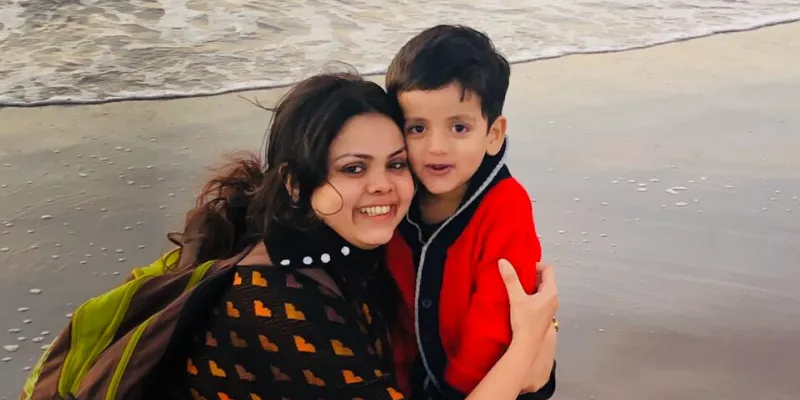
Dr Sanjibani with her three-year-old son.
“It is quite a task to manage the overalls and PPE on a daily basis. And, when the weather is hot, it adds to the woes. Ensuring the face is not touched while the suit is on is also a challenge that health workers have expressed. Besides, every time any of them want to use the washroom, or even have a meal, the entire gear has to be taken off,” notes Dr Sanjibani.
On that premise, at the other end of the spectrum, health workers in some areas have been facing an acute shortage of PPE equipment. India has reported more than 32,000 coronavirus cases so far, and this is only expected to increase in the coming days. As of April 22, 156 nurses and 96 doctors formed a part of those numbers. Naturally, the demand for PPE in hospitals and diagnostic centers has shot up. While those who procured protective gears in advance are functioning with ease, others are experiencing a potentially hazardous deficit.
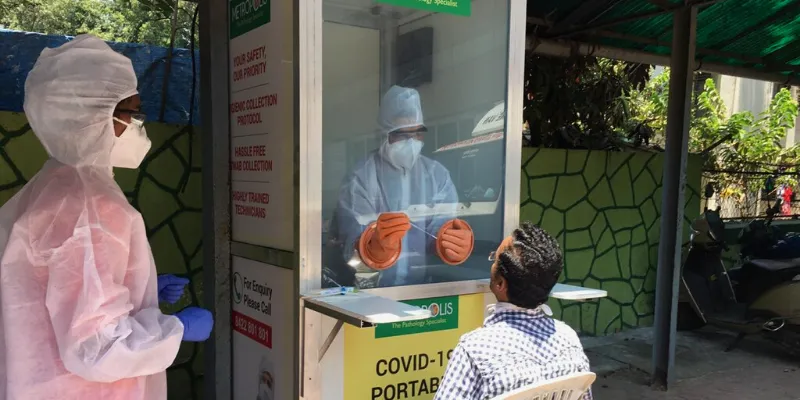
Health workers collecting samples from people to test for COVID-19.
Image credit: Metropolis Labs
Chennai-based Neuberg Diagnostics has tested more than 3,000 samples for the virus in the last three weeks. Dr Saranya Narayan, the Technical Director and Chief Microbiologist of the lab, elaborates on the importance of safety standards and judicious usage of protective gear:
“We were able to get hold of the necessary PPE for our lab mainly because we had planned the purchase well before time based on anticipated demand. I suppose not all health care centres were in a position to do so. Hence, I cannot stress the importance of using these wisely. Not everyone at a hospital that is testing for the virus needs to put on N-95 masks. It is imperative only for the staff members who are in direct contact with the samples. The others can simply use surgical masks. The same goes with goggles, overalls, face shields and nitrile gloves,” she explains.
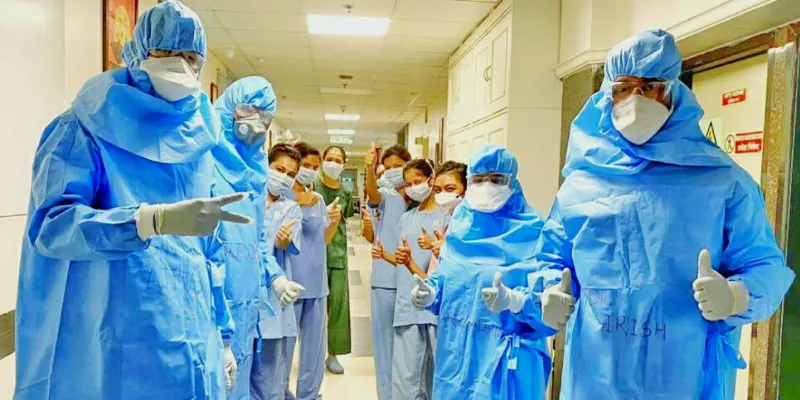
Medical professionals at Bhatia Hospital in Mumbai with their protective gear on.
Today, health workers have set new rules for themselves at their residence. Since they want to ensure the safety of their family members, many of them make it a point to not touch anything while entering their homes. They have been taking all the necessary precautions, including applying sanitizer before coming in contact with any surface, even if it is a button near the lift. Some medical professionals have even chosen to stay away from their homes, for the time being, to protect the young and old.
“Health workers are doing their best amidst these testing times. People have to be empathetic towards them and extend all the support possible. We need to understand that the virus is not originating from hospitals – it is getting activated outside of it – and healthcare units are only fulfilling their roles of identifying and treating it. Not letting the medical staff to stay in their own homes, and causing trouble to their family has a huge negative impact on them,” says Dr Girish Mugali, Intensivist at Bhatia Hospital in Mumbai.
Support from healthcare centres
The support that healthcare workers are being provided by hospitals and diagnostic centers across the nation, right now, is definitely a break in the clouds. Several healthcare units are presently ramping up efforts to help frontline health workers cope with stress and carry out their responsibilities smoothly.
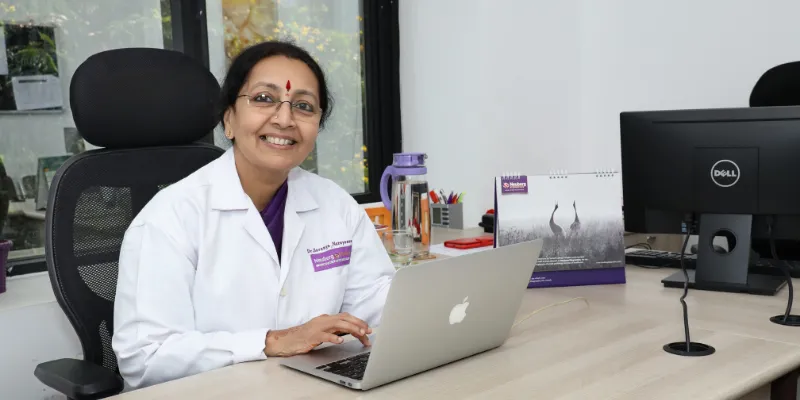
Dr Saranya Narayan, Technical Director and Chief Microbiologist, Neuberg Diagnostics.
“We have tried to do everything possible to ensure the comfort and safety of our health workers. Most of the frontline staff has been requested to work on rotational shifts so that they do not have to work for long hours. Besides, we have begun holding periodic feedback sessions with them to address their concerns and keep them motivated. In addition to this, Neuberg Diagnostics has initiated pick-and-drop facilities for the workers so that they do not have to worry about transport,” says Dr Saranya.
Bhatia Hospital, located at Old Chikalwadi in Mumbai, recently reported that 42 of its health workers had tested positive for COVID-19. Even though more than half of them have managed to recover, the others are still spending time in isolation wards.
“We did implement all the measures to safeguard the health of everyone at the hospital, including all the steps suggested by the Indian Council of Medical Research (ICMR). However, after a few of the patients tested positive, some of the staff members stood exposed. The senior management at the hospital is taking all the actionable moves in their capacity to contain further spread through contact tracing, and also monitoring the health of those who are still ill,” says Dr Girish.
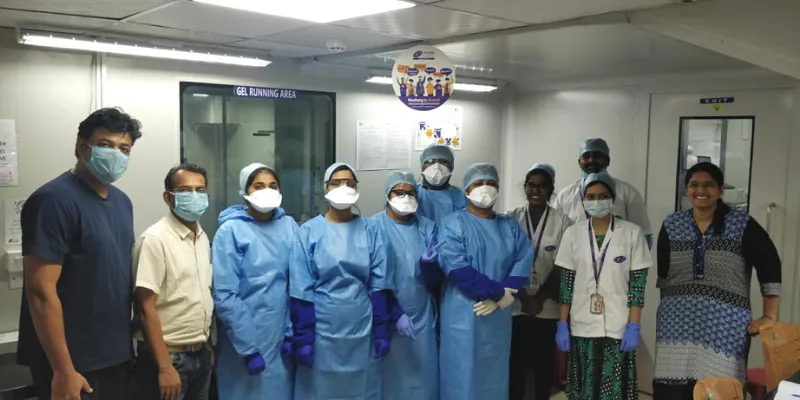
The medical team of Anand Diagnostic Laboratory.
Another diagnostic centre that is putting its best foot forward is Bengaluru-based Anand Diagnostic Laboratory. Not only is it testing for the virus completely free of cost, but it has also executed certain work flows so as to assist its medical staff.
“We have put in place a slew of processes to make things easy for our medical staff – right from the time they receive the samples, until the results are reported. We even trained them to adhere to certain well-defined steps across every action, including processing paperwork, disinfecting the devices, transferring the fluids to the test tube, extracting the RNA in the bio safety cabinet and finally undertaking the tests in the PCR. This in turn has helped them perform efficiently, and taken a part of the load off their shoulders,”says Dr Sujay Ramprasad, CEO of Anand Diagnostic Laboratory.
A collective effort for the welfare of health workers
With a view to protect the health workers in the country, the government of India recently passed an ordinance making violence and physical attacks against medical staff a non-bailable offence, punishable by up to seven years in prison. The Epidemic Diseases (Amendment) Ordinance, 2020, dictates that the culprits will have to pay a penalty of up to Rs 7 lakhs, depending on the severity of the act, and also states a time limit of 30 days for the completion of the investigation.
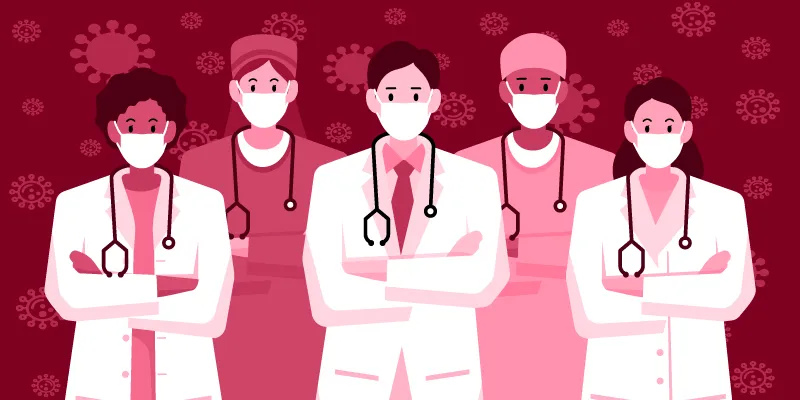
In addition to this, the government announced an insurance cover for all the medical professionals attending to COVID-19 patients.
“Under the Pradhan Mantri Garib Kalyan scheme, the government has promised an insurance cover amounting to Rs 50 lakh per person. This is applicable to frontline health workers, sanitation staff, paramedic staff, nurses, doctors and even ASHA workers. This is a move to safeguard health workers, and their families, in case they happen to test positive for the virus. We are also trying our best to administer hydroxychloroquine to the health workers who are coming in contact with patients and also ensuring the regular supplies of PPE and sanitizers,” Dr Ramachandran, Managing Director of National Health Mission in Karnataka.
It is not only the government which is extending a helping hand – NGOs, and certain volunteer groups
have come forward to join the fight to keep healthcare workers safe. Habitat for Humanity, SEEDS, and Spreading Happiness have been raising funds to provide PPE, masks, and food to the frontline medics.
Life is not a bed of roses for the medical fraternity today, and it is important for the country’s institutions, and people, to treat these cruel acts of violence against them as a wakeup call to get together and support them.
Edited by Aparajita Saxena




